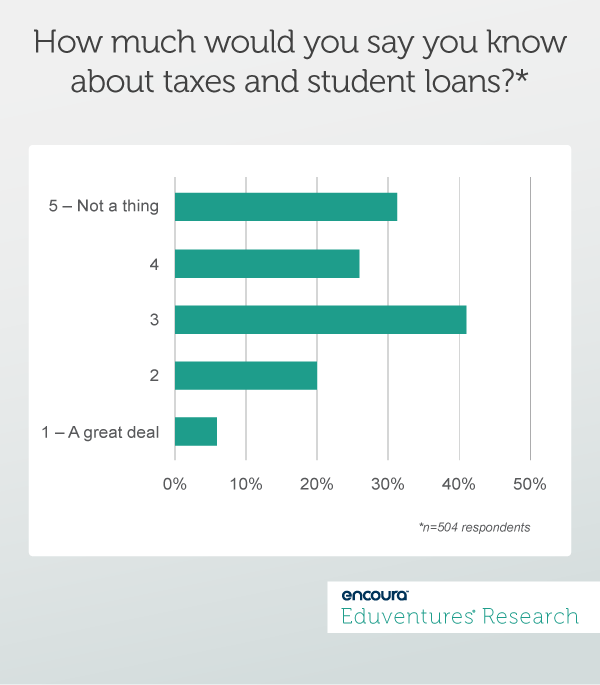As summer heats up and colleges and universities combat summer melt, it’s time to face the reality that chances of reauthorizing the Higher Education Act (HEA) in 2018, and possibly even 2019, have also melted away.
At the Eduventures Summit in June, Inside Higher Ed’s Doug Lederman and Cooley LLP’s Michael Goldstein discussed these chances.
Here’s a telling excerpt from their conversation:
 If these students either felt ill-informed or disinterested in what was then an arguably more consuming national debate, it may be fair to assume that their understanding of HEA authorization could be similarly indifferent.
When asked about practical things Congress could do to make higher education more affordable and accessible, however, we can gain a better understanding of what students do care about. In fact, three common themes—all related to the HEA—rise to the surface. According to students, Congress should:
If these students either felt ill-informed or disinterested in what was then an arguably more consuming national debate, it may be fair to assume that their understanding of HEA authorization could be similarly indifferent.
When asked about practical things Congress could do to make higher education more affordable and accessible, however, we can gain a better understanding of what students do care about. In fact, three common themes—all related to the HEA—rise to the surface. According to students, Congress should:
Doug Lederman: “HEA reauthorization in 2018?” Michael Goldstein: “No.” Doug Lederman: “2019?” Michael Goldstein: “Probably no.”What are the culprits of the stalled reauthorization effort? According to Goldstein, a lack of bipartisanship and a changing political landscape, setting the stage for November’s midterm election. Indeed, the Promoting Real Opportunity, Success, and Prosperity through Education Reform (PROSPER) Act, introduced in December with little action since, has been dubbed a “conservative wish list” by many higher education advocates given its partisan roots in the House of Representatives. Attempts for a more bipartisan approach to HEA reauthorization in the Senate have stalled out over deep disagreements on policy and the potential for a flipped House in November. No matter the reasons for how we got here, the issue remains that colleges and universities—all hoping for clarity on the future of federal higher education laws—are forced to wait indefinitely for a legislative update. But amid the echo chamber of legislators, higher education advocates, and the media, are voices that seem to receive little attention in this debate: those of students. If students had a voice in HEA reauthorization, what would it be? Students are being asked to foot ever increasing shares of college costs and are faced with a rapidly changing workforce and economy. At the Eduventures Summit we heard from a number of students on the main stage. While their stories were different, each spoke about the everyday obstacles put in their path toward a degree: financing, starting a family, job obligations, varying degrees of college readiness, and a lack of student supports, to name a few. While we cannot say for sure how students would feel about the current proposed legislation, previous Eduventures studies can shed light on what issues they do understand and care about. Earlier this year, for example, we conducted a student survey during the debate over the controversial higher education tax reform proposals. In that study we asked students how much they knew about higher education-related taxes and student loans. While their responses were largely non-committal, fewer indicated they understood these issues than those who did.
 If these students either felt ill-informed or disinterested in what was then an arguably more consuming national debate, it may be fair to assume that their understanding of HEA authorization could be similarly indifferent.
When asked about practical things Congress could do to make higher education more affordable and accessible, however, we can gain a better understanding of what students do care about. In fact, three common themes—all related to the HEA—rise to the surface. According to students, Congress should:
If these students either felt ill-informed or disinterested in what was then an arguably more consuming national debate, it may be fair to assume that their understanding of HEA authorization could be similarly indifferent.
When asked about practical things Congress could do to make higher education more affordable and accessible, however, we can gain a better understanding of what students do care about. In fact, three common themes—all related to the HEA—rise to the surface. According to students, Congress should:
1. Increase the accountability of higher education institutions.
- “Demand greater transparency and honesty on the part of colleges and universities concerning the time it takes to complete programs and the marketability of the degree.”
- “Have universities not be driven so much by research and more driven to provide good education.”
- “Provide incentives to schools that have better on-time degree completion rates and overall higher rates of degree completion.”
2. Lessen the financial burdens placed on students when financing their higher education.
- “Uphold the student loan forgiveness for public service. A lot of people counted on that promise.”
- “More grants for middle class applicants.”
- “Keep income-based repayment options.”
3. Encourage and highlight alternative educational opportunities.
- “Encourage local training programs in fields that have high demand (welders, etc.)”
- “Promote trade schools and cheaper options instead of university education.”
- “Provide incentives for students to go to trade schools because there are trade school jobs that need to be filled.”

